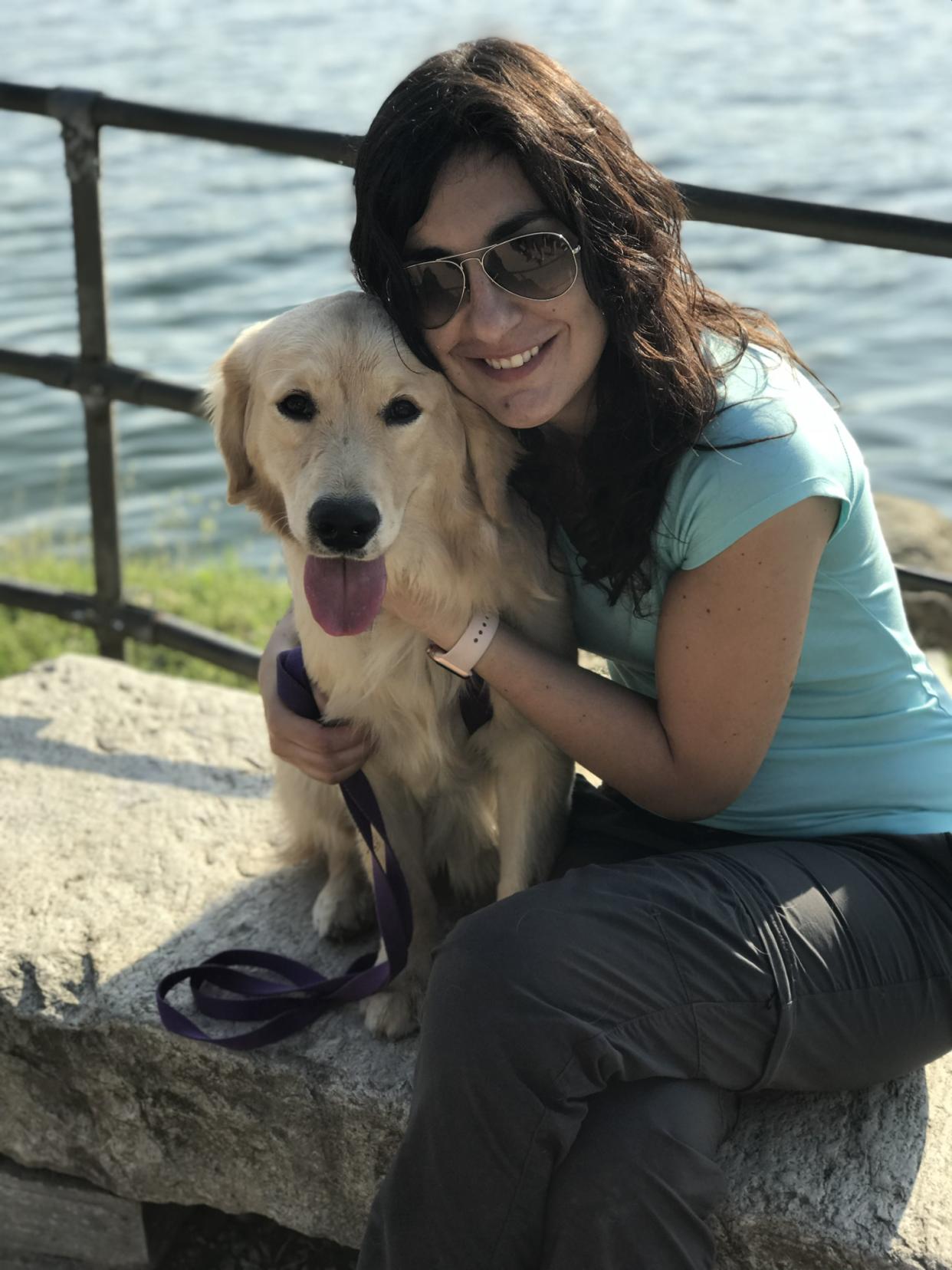Dogs bring joy, relief to anxious medical workers treating COVID-19 patients

Some medical workers on the front lines of the coronavirus pandemic have taken to social media to acknowledge a major source of comfort as they deal with fear, anxiety and sadness: their dogs.
Valentina Crudo-Josefosky, an emergency and internal medicine doctor at a hospital near Turin, Italy, tells Yahoo Lifestyle that her dog, Waffle, doesn’t leave her side when she’s home. “ If I come home from a night shift, she sleeps at the foot of the bed all morning. She is such a carefree and joyous being that she’s infectiously so,” she says.
Crudo-Josefosky says she’s under an immense amount of stress as she works 12-hour shifts treating coronavirus patients. She says it’s especially hard because the hospital is on lockdown, and the patients are alone. “Very sick patients sadly die alone. I’ve used my own phone to FaceTime patients and family members, but of course, it’s not the same,” she says. “Some really tough decisions have to be taken on the phone: to tube, to let someone go, the approach to take. It’s hard on everyone, the patients and families first and foremost, but on us all too.”
Last week, Crudo-Josefosky submitted a photo of her dog Waffle to the Instagram account The Dogist, which profiles the stories of dogs and often their owners, celebrating how much her dog means to her in a time of such sadness and stress.
She says Waffle somehow knows what’s she’s going through and supports her.
“I don’t know how she understands it, but she does. It’s probably due partially to her beautiful personality, and partially to the fact that we spend a ton of time together,” she says. “It happened in the past too: in December I had surgery for thyroid cancer, and when I got home, she didn’t leave my side for a whole week. [He] would open the bathroom door to be with me.”
Evan MacLean, the director of the Arizona Canine Cognition Center who investigates the social cognition of dogs, tells Yahoo Lifestyle that dogs don’t directly understand when people are going through a challenging experience in their lives, but they are very tuned into their owners. “They can be incredibly sensitive to our emotions and body language, so it's not surprising that if people come home distraught, on edge, or otherwise emotionally out of sorts, that dogs are going to pick up on these cues,” he says. “As social animals, they are very much wired to tune into those around them.”
Some studies show that pet ownership is associated with better mental health, less anxiety – and even fewer trips to the doctor.
Elias Friedman, the creator of The Dogist, which has 3.7 million followers, has been highlighting how dogs specifically are helping medical workers and others during the pandemic. His main mission: to raise awareness about the realities of what medical workers are going through to encourage people to stay home.
“I think using our audience and voice to try and further that message, that's the most important thing we can do to help these people on the front line, it’s to try and slow the spread so that they can flatten the curve,” he tells Yahoo Lifestyle.
Adrienne Bruce Shannon, a surgical resident with the University of Pennsylvania, says her dog Harper, senses when she’s sad or stressed. “When I’m not at work, it’s been constant snuggles. And somehow that’s enough to make it better,” she says.
She’s preparing to soon be redeployed to the emergency department in anticipation of a rise in COVID-19 patients in early May. So far she’s only been issued one regular mask, not an N95, and they are expected to wear it constantly. She tells Yahoo Lifestyle she struggles with feelings of fear, being overwhelmed and is angry, too.
“Anger at people for not heeding our recommendations. Anger that we’re not protected enough,” she says. “I think there are some people that feel taken advantage of. And yet I think all of these feelings are valid. It’s a lot. A lot of people aren’t sleeping well (myself included). I know residents who have found lawyers to draft wills, re-planned who will receive their life insurance. These are measures we would never think of otherwise. It’s hard to wrap your head around.”
She says Harper has been a critical source of comfort in these uncertain times. “It’s a beautiful relationship when you have one in your life. They’re always excited to see you. You’re their entire world. And I think that’s so powerful when you spend the day dealing with such stress and grief.”
Friedman, who says he has profiled over 40,000 dogs since 2013 for The Dogist, ironically doesn’t have a dog of his own. But he says these difficult times highlight just how important dogs are.
“Lots of people were laid off, so many people are alone. Everyone is going through some sort of stress and difficult time,” he says. “If you’re lucky enough to have a dog you’re probably appreciating what dogs do for us, now more than ever.”
For the latest coronavirus news and updates, follow along at https://news.yahoo.com/coronavirus. According to experts, people over 60 and those who are immunocompromised continue to be the most at risk. If you have questions, please reference the CDC and WHO’s resource guides.
How to maintain your physical and mental health during the pandemic
Taking care of a loved one with COVID-19? Here’s how to stay healthy
Q&A with Dr. Kavita Patel: How to keep your family safe and maintain your mental health
Read more from Yahoo Lifestyle
Want daily pop culture news delivered to your inbox? Sign up here for Yahoo Entertainment & Lifestyle's newsletter.

